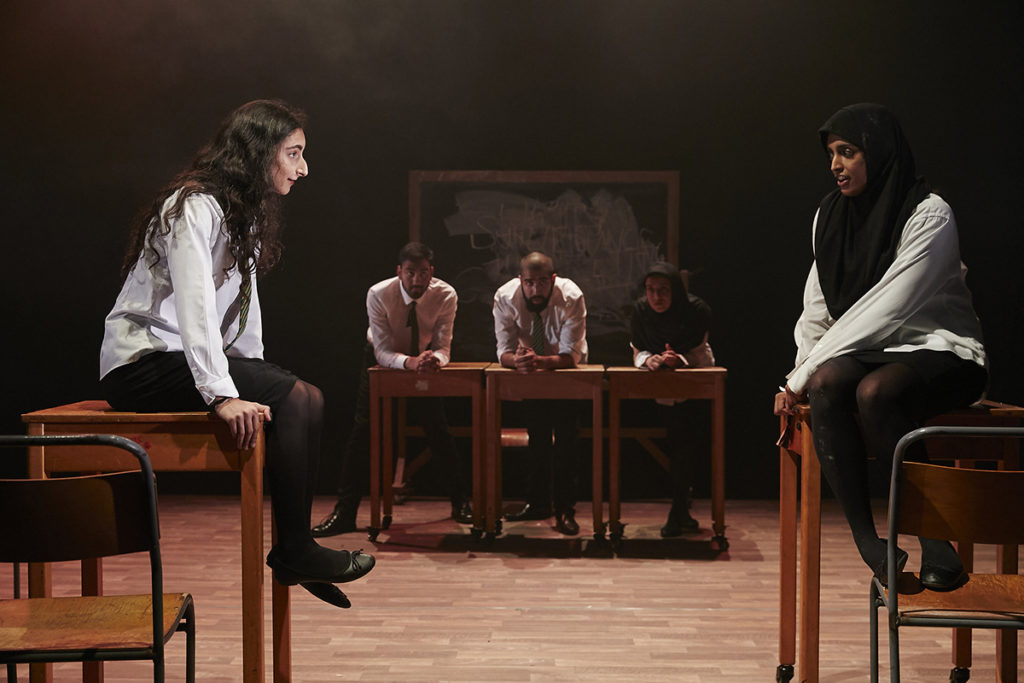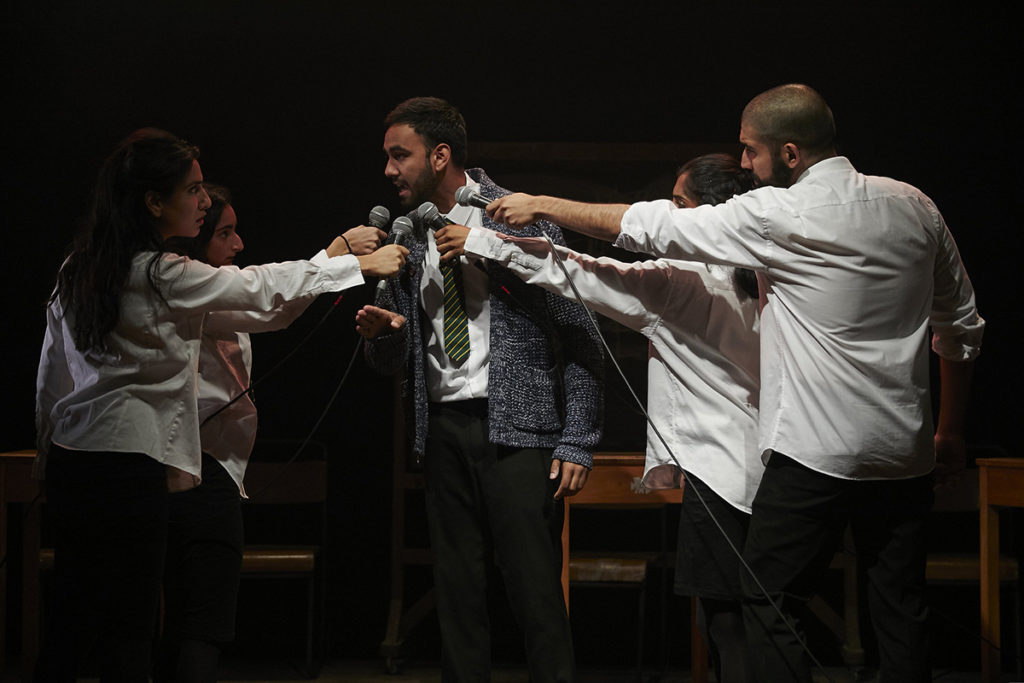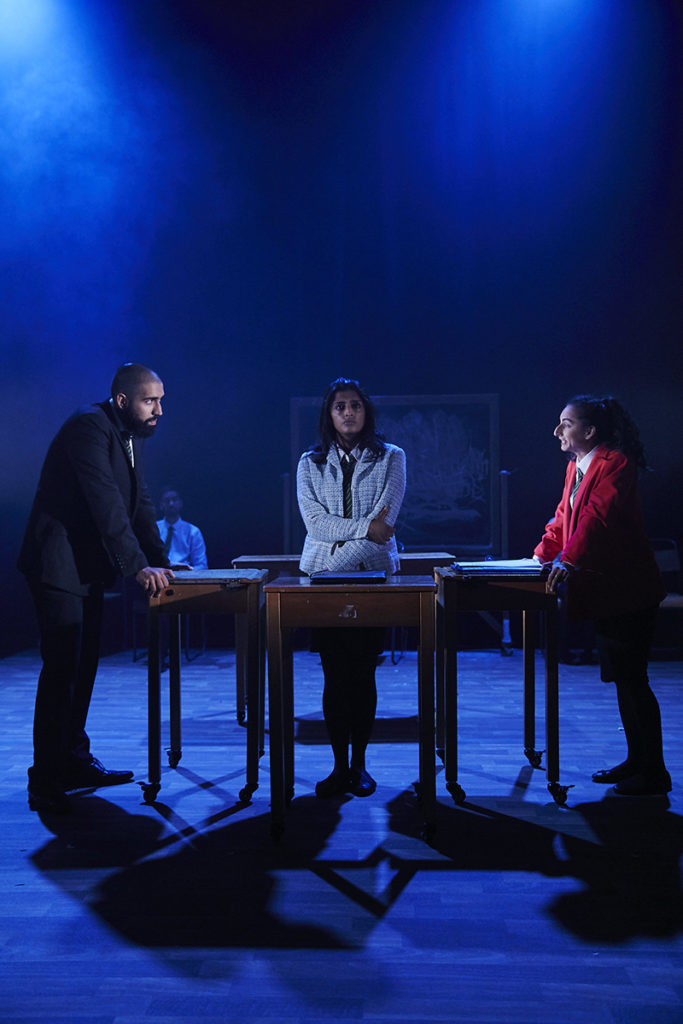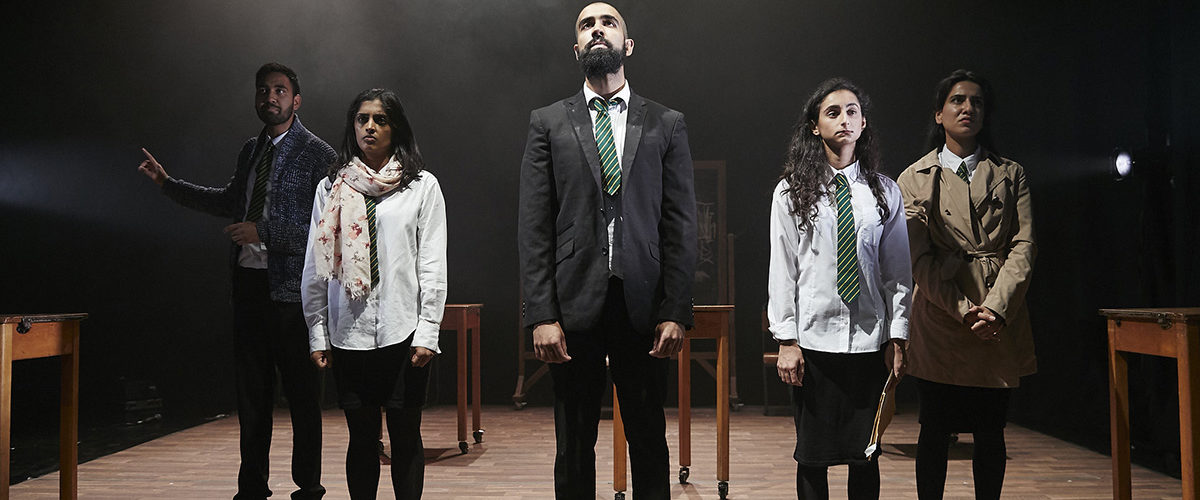If you remember the 2014 controversy regarding certain Birmingham schools and the so-called ‘Trojan horse’ revelations, you most probably recall it as a conspiracy by certain Muslim governors to take over and radicalise British schools, a conspiracy which, had it not been nipped in the bud, was all set to spread across the country.

“He made me a better person.”
LUNG theatre’s new production sets out to argue that there was no such conspiracy (and it is now accepted, though not widely known, that the original letter presented to Birmingham council – one which detailed five steps for Muslim governors to take control of schools, teachers and curriculum – was fake).
Instead, as presented in this powerful and important piece of verbatim theatre, we see decent, committed (albeit flawed) men being cast as villains due to a toxic blend of professional grievances, a right-wing press predisposed to Islamophobia, and ruthless political infighting.
When the charismatic and determined Tahir Alam became governor of Park View school it was not only one of the worst schools in Birmingham, but one of the worst schools in the entire UK. Under his leadership (taking advantage of the government push for schools to become independent academies), Park View improved to the point of being judged outstanding by Ofsted. Alam himself was invited to tea at the Palace of Westminster.

“British values are Islamic values.”
Within months, he would be tarred as a dangerous extremist conspirator, bullying and manipulating teachers in order to Islamise the academy. A young teaching assistant, who credits Alam with changing his life for the better, would be banned for life from teaching children (largely due to homophobic comments posted to a private WhatsApp group). Park View itself, having climbed from having less than 10% of students achieve A*- C GCSE grades to having 76% reach that mark, slipped, in the wake of the controversy, to 43%. In other words, the chief victims of the ‘Trojan horse’ farrago were the children; children from one of the most deprived areas in the country.
“I put on my power suit and channeled Hillary Clinton.”
Verbatim theatre (with Max Stafford-Clark’s Out of Joint company being a key player, through productions such as Talking to Terrorists has become a significant but problematic genre in recent years). For an audience, it is important to be aware that verbatim theatre (in which actors speak only the words of original participants in real life events) while it should tell the truth and nothing but the truth, can never tell the whole truth (due to the vast amounts of source material – Trojan Horse is developed from 200 hours of interviews, as well as other documentary sources). Choices have to be made – by writer, director, actor – about what is to be said, how it is said (and even, by whom – characters are amalgamated, even created). Any piece of verbatim theatre is a work of art based in fact (as, by the way, is more or less any so-called documentary film). To that end, take note that director Matt Woodhead is credited alongside Helen Monk as ‘writer’.

“Everything you’ve ever done for this school has been selfless. Don’t be selfish now.”
The question then, for the audience, is (as it is with any work of art): am I being shown important truths? My sense with Trojan Horse is that the answer here is, yes.
“I am a danger to your children,” announces teaching assistant Rashid at the opening. It seems like a blunt confession. When he repeats these words at the close, we know that this is actually an angry, anguished and ironic protestation of innocence. It’s excellent, powerful, and emotionally-profound theatre.
“Boy to man, what’s my label?”
Woodhead’s direction of his five-strong cast is very strong: snappy and clear, without ever feeling rushed or drawn out. There is space for us to take to (or, in one or two cases, take against) the protagonists and their (largely) righteous indignation. Komal Amin, Gurkiran Kaur, Qasim Mahmood and Keshini Misha all excel and Mustafa Chaudry, as Rashid, tops and tails the story to maximum emotional impact.
The set and props are kept simple yet effective (five school desks, a Macintosh, scarf, etc.) against a backdrop of key quotations. There is a dynamism which maintains energy but is never frantic.

“As if British is something I have to prove, rather than something I always was.”
The post-show discussion, featuring among others, Professor John Holmwood, would benefit from the presence of the director and at least one cast member. Audiences need to know about the process as well as the issues. Simultaneous Urdu translation is available for each performance.
I commend this production to you. See it and stay for the discussion afterwards. It matters.
★ ★ ★ ★Lung presents Trojan Horse at The Lowry from 8-12 October 2019.
Read our interview with Lung artistic director, Matt Woodhead.





